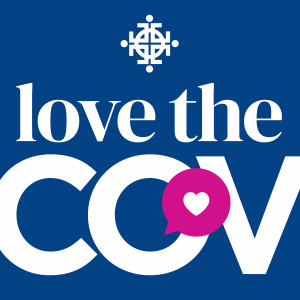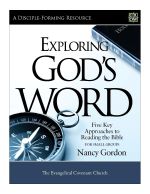Q4 Emphasis on Scripture

By Dawn Taloyo, Associate Superintendent, PacNWC
I just counted ten Bibles on my office bookshelf. That number doesn’t include versions in the other rooms in my house or the myriad of versions available to me digitally at my fingertips. It is easy to take the accessibility of Scripture for granted. I was reminded of this recently when I listened to the inaugural episode of the Love the Cov podcast, which included an interview of C. John Weborg, lifelong Covenanter and professor emeritus of theology at North Park Theological Seminary. He reminded listeners of the earliest beginnings of the Covenant in Sweden where a growing movement of small groups (called Conventicles) popped up with members joyfully gathering around Scripture and experiencing a renewal of faith and fruitfulness. These Swedes became known as “Readers,” exemplifying what a unique experience of faith and practice this was during that time and context.
The Word of God, as our first affirmation says, is central to our spiritual formation and discipleship as well as central to our Covenant identity. In 2008 the ECC published a resource paper called, “The Evangelical Covenant Church and the Bible,” to remind us of this historic heartbeat of the ECC as well as to “…renew our commitment to the authority of God as revealed in the Scriptures. Our desire is to keep alive, strong, and always growing the flame that first burned in our forebears for the authority and power of God’s word.” Also in 2008, a supplemental small group study guide, called Exploring God’s Word was produced by the then named Department of Christian Formation, to guide Covenanters through that resource paper.
My purpose in this is to remind us of our critical history as well as these resources that can still be accessed at the covchurch.org website to be used in our local churches. In a time when we are feeling disoriented (and divided) by so many concerns and issues of the day, and we are hearing renewed calls towards a deeper and heartier discipleship (think Ps 1; Jer 17:7-8), I want to point us to the Word of God. Let us return to being “Readers,” which in the early days meant reading and discussing the Word regularly in community.
Important to our Covenant roots and culture is not only that we read, but how we read Scripture. We are encouraged in these resources to read. [Full stop.] We are also encouraged to read with a particular posture and appreciation. The writers summarize the Covenant approach to reading as this:
We read the Bible…
…Faithfully
…Communally
…Rigorously
…Charitably
…Holistically
…with commitments to grace, transformation, and mission.
I will not take the time here to explain each of these approaches, but encourage you to check out the paper and study guide for a deeper dive. What is described is hallmark to what it means to be Covenant and helps reconnect us to our historic roots. Importantly for today, they provide common commitments for a people who do not want to give up meeting together (Hebrews 10:25), and who want to find a shared approach to reading, discussing and growing in God’s Word.



